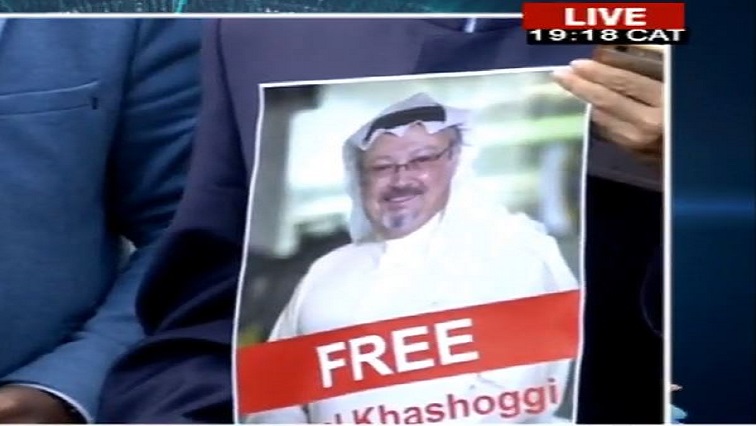Saudi Arabia admitted on Saturday that critic Jamal Khashoggi was killed inside its Istanbul consulate, saying he died during a “brawl”, as Turkey vowed to release the full findings of its own investigation.
President Donald Trump called the new Saudi explanation credible, but top US lawmakers, including some from his own Republican Party, voiced scepticism.
Riyadh announced the arrest of 18 Saudis and the sacking of two top aides of Crown Prince Mohammed bin Salman, who has faced mounting international pressure over the journalist’s disappearance.
Khashoggi, a Washington Post contributor and critic of the Islamic petro-state’s powerful crown prince, was last seen on October 2 entering his country’s consulate in Istanbul.
His disappearance had been shrouded in mystery and tipped Saudi Arabia into one of its worst international crises.
Turkish officials have accused it of carrying out a state-sponsored killing and dismembering the body which police have begun hunting for in an Istanbul forest.
The Saudi admission after persistent claims that Khashoggi had left the consulate alive came amid the threat of US sanctions and appears aimed at distancing Prince Mohammed from the affair.
In the latest version of events from Riyadh, Saudi Attorney General Sheikh Saud al-Mojeb said Khashoggi died after talks at the consulate degenerated into an altercation. He did not disclose the whereabouts of the journalist’s body.
“Discussions that took place between him and the persons who met him… at the Saudi consulate in Istanbul led to a brawl and a fistfight with the citizen, Jamal Khashoggi, which led to his death, may his soul rest in peace,” the attorney general said in a statement.
The Saudi king also ordered the setting up of a ministerial body under the chairmanship of the crown prince to restructure the kingdom’s intelligence agency and “define its powers precisely”, state media said.
Deputy intelligence chief Ahmad al-Assiri and royal court media adviser Saud al-Qahtani, both part of Prince Mohammed’s inner circle, were sacked.
Saudi Arabia’s Gulf ally, the United Arab Emirates, welcomed the moves by the king.
Khashoggi’s Turkish fiancee Hatice Cengiz tweeted that her heart was “full of sorrow” at the confirmation of his death.
The controversy has put the kingdom for decades a key ally in Western efforts to contain Iran under unprecedented pressure to offer an explanation to take the heat off its rulers.
It evolved into a major crisis for Prince Mohammed, a US administration favourite widely known as MBS, whose image as a modernising Arab reformer has been gravely undermined.
Ankara said it regarded it as a “debt of honour” to reveal what happened.
“We are not accusing anyone in advance but we don’t accept anything to remain covered (up),” said ruling Justice and Development Party spokesman Omer Celik.
Trump swiftly endorsed Saudi Arabia’s explanation and termed it an “important first step”.
“I do, I do,” Trump said when asked if the Saudis’ explanation was credible, while adding: “It’s early; we haven’t finished our review or investigation.”
Trump had previously said Washington could impose sanctions, but his administration had been notably slow to criticise its Gulf ally.
The case has presented Trump with one of the most acute foreign policy crises of his nearly two-year-old presidency, as he weighs pressure at home and abroad for sanctions against his desire not to jeopardise a massive arms deal he signed with Saudi Arabia.
Saudi officials have roundly denied that Prince Mohammed had any involvement.
But one suspect identified by Turkey was said to be a frequent companion of the young heir to the throne, three others were linked to his security detail and a fifth is a high-level forensic specialist, according to The New York Times.
The decision to overhaul the intelligence apparatus and sack members of the crown prince’s inner circle is designed to “distance the crown prince from the murder”, said analysis firm Eurasia Group.
In a recent off-the-record interview published posthumously by US magazine Newsweek, Khashoggi described the 33-year-old as “an old-fashioned tribal leader” but said he would have accepted an offer to work as the prince’s adviser.
“I’m not calling for the overthrow of the regime,” the onetime royal insider said. “I’m just calling for reform of the regime.”
Saudi Arabia’s admission comes after Turkish authorities widened their probe on Friday, interviewing consulate staff as well as searching the Istanbul forest where a Saudi diplomatic vehicle was traced.
Pro-government Turkish media have claimed that Khashoggi was tortured and decapitated by a Saudi hit squad, although Turkey has yet to release any official findings.
“Each successive narrative put out by the Saudis to explain what happened to Khashoggi has strained credulity,” Kristian Ulrichsen, a fellow at Rice University’s Baker Institute in the United States, told AFP.
“Especially because the Saudis are still unable or unwilling to produce the one piece of evidence a body that could provide a definitive answer one way or the other.”
Republican Senator Lindsey Graham, an influential Trump ally, said he doubted the latest admission from Saudi authorities.
“To say that I am sceptical of the new Saudi narrative about Mr Khashoggi is an understatement,” he tweeted.






